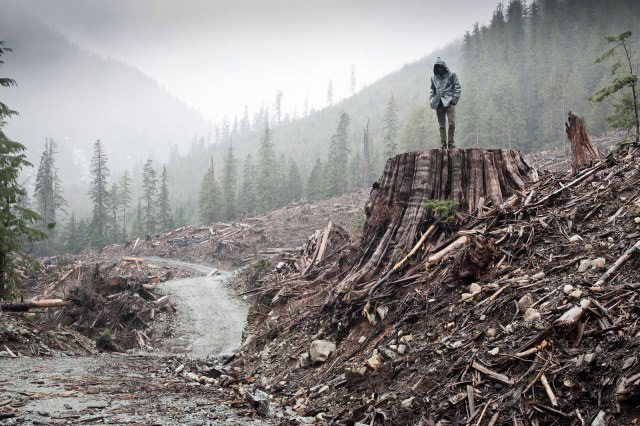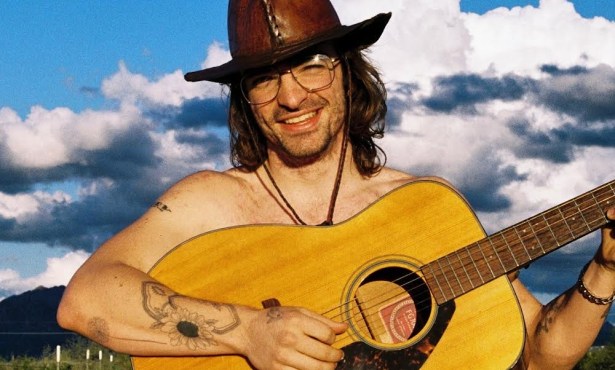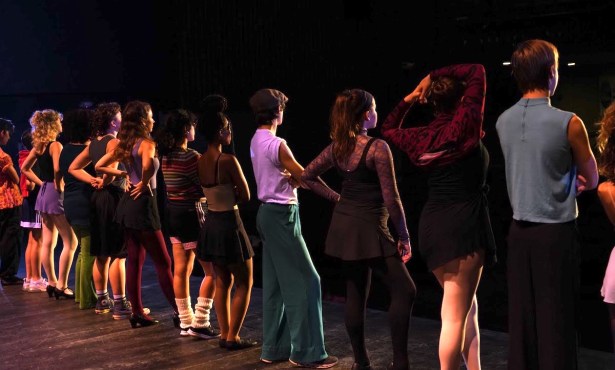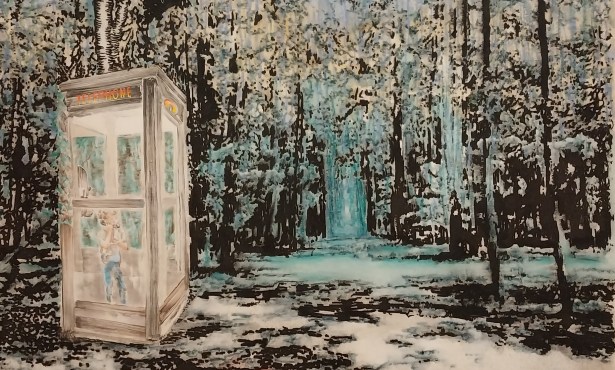Eco-Terrorism, Evaluated
Marshall Curry's Film If a Tree Falls Comes to UCSB's Campbell Hall

When eco-enraged arsonists ignited park ranger stations and SUV dealerships in the mid-1990s, the environmental movement ran into its biggest philosophical crossroads yet. Should the fight for a cleaner planet and against polluting corporations feature such attacks, or were peaceful protests and prudent policymaking the proper strategies for effecting change?
As is revealed in Marshall Curry’s thought-provoking documentary If a Tree Falls — a character study of one such arsonist from the Earth Liberation Front named Daniel McGowan, who was arrested years after his youthful nights of vengeance and prosecuted as a terrorist — those questions have never really been completely answered by the world’s eco-warriors, and many continue to deal with the repercussions of decades-old eco-terrorism to this very day. In anticipation of the film’s screening at UCSB’s Campbell Hall on Tuesday, November 29, Curry answered a few of my questions via email.
The environmental movement was clearly split by this situation, but they did score some major impacts to allegedly polluting or destructive businesses overnight. In some cases, they literally did in one night what years of letter writing could not do. So is there room for more vigilantism in the environmental movement?
The environmental movement is taking on powerful opponents who stand to make a lot of money (and have a lot of money to spend on lobbying and organizing). Sometimes it can feel like it’s impossible to win, and the arsons were born out of a sense of frustration and desperation. But I think that sometimes the movement underestimates its own potential political power. A lot of folks I talk with throw up their hands and say that there’s no reason to vote or organize voters, but by walking away from the political process they really strengthen their opponents.
There are examples of movements that don’t have tons of money but organize their constituents into voting blocks and wield great power from that. Take the NRA or the AARP. Lobbyists from those groups can dictate terms to legislators, not because they have the most money, but because they represent groups of voters who will vote on that issue, and legislators know that and are afraid of that.
You show law enforcement being almost repentant, or at least ponderous, about the investigation and the ensuing trouble they caused these activists. Were you surprised that the prosecutor seemed to see where these kids were coming from?
At the end of the interview I did with the federal prosecutor, I asked him whether his feelings had changed at all over the years that he worked on the case and he said the amazing lines at the end of the film about understanding the people who he had put in prison. To be clear, he was not saying that he approved of the arsons and he thought they did deserve to go to prison — but he saw human complexity there. It was an amazing conversation and really surprised me.
But I came to realize that almost everyone who has spent a lot of time on this case — law enforcement, activists, ELF members — looks back and sees how gray it is. There’s a line I like that goes, “the deeper you go, the muddier the water gets,” and I think it applies here. We tried to explore that in the film — not to say that these people are heroes and those people are villains — but to look beneath the posturing and rhetoric and understand the ideas and emotions and experiences behind these fires.
Probably the most annoying part of the whole saga is that they use the person who appears to be the biggest bad guy, Jacob Ferguson, as the rat, and then he gets no punishment. What’s that say about American justice, when the ringleader gets off and the lookouts go to prison?
From the government’s perspective, letting him off was their only option. They had been working for years on the case with no leads, and they knew that if they let him walk, he would give them information, and if they didn’t, he wouldn’t. So they were willing to let one guy walk in order to bring down the whole group.
But it does feel unjust on a gut level when that happens — and I understand that it happens all the time throughout the justice system, in drug cases, organized crime, etc. Daniel’s lawyers also cited it as an argument against the huge potential sentences that were hanging over their heads. They said, “How can it make sense for one person to face life in prison for two arsons and another to walk after being involved with 14?”
How’s Daniel doing now? Do you keep in touch with his family?
I do keep in touch with his sister and wife a bit. He is in a very restrictive prison called a Communication Management Unit in Terre Haute IN (he was originally in Marion, Il, but has been moved.) That is very frustrating to him– not to be able to talk on the phone except for a few minutes a week– and to not be able to sit in a room with his wife or niece (he has to visit them through bullet proof glass). But he has two more years and is looking forward to getting out and getting his life back together.
Something about the whole situation strikes me as familiar, with the Occupy movements happening now.
It has been interesting to watch the Occupy protests in light of the film. Just a couple months ago, the idea of widespread civil disobedience, police use of pepperspray on non-violent protesters, and arguments over tactics (whether property destruction was effective or ethical) seemed like historical issues. But now, the film feels very timely and the issues it raises feel very current.
4•1•1
If a Tree Falls: A Story of the Earth Liberation Front screens at UCSB’s Campbell Hall on Tuesday, November 29. Call 805-893-3535 or see www.artsandlectures.ucsb.edu for tickets.



